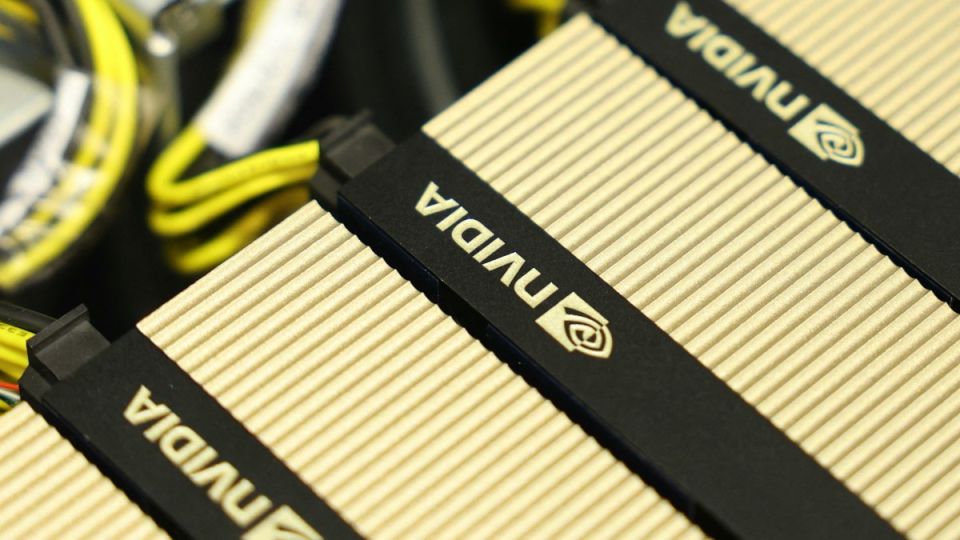August 4, 2025
SHENZHEN – Two weeks after Nvidia’s chief executive Jensen Huang mounted a charm offensive to court the Chinese market, the American chip giant found itself once again the centre of attention in Beijing – and not in a good way.
“Nvidia, how can I trust you?” So read the headline of a commentary published by the People’s Daily, the communist party’s mouthpiece, a day after Chinese regulators summoned the company’s representatives on July 31 over what they deemed “serious security issues” related to its chips.
The processor in question, known as the H20, was until recently the most advanced chip that Nvidia could sell to China under US restrictions. Washington effectively banned their export in April amid an escalating trade war, but said in July that it would allow sales to resume.
Some US officials touted the easing of export controls as a negotiating chip in ongoing trade talks with Beijing. But this apparent concession, analysts say, is not necessarily all good news for China.
“The reversal of the H20 ban offers short-term relief for China’s artificial intelligence (AI) industry,” said Mr Charlie Dai, a vice-president and principal analyst at advisory firm Forrester Research.
“On the other hand, it could slow domestic chipset adoption and impact the pace of technology self-reliance (amid) ongoing geopolitical frictions.”
A taste for Nvidia
China has been advocating the use of home-grown chips by its companies as part of a broader push for self-reliance, including in key technologies such as AI.
Despite this, many Chinese AI firms – in particular private tech giants – are said to still prefer using Nvidia’s H20s to train and run their models, even though the chips are not Nvidia’s most powerful.
After the US announced a lifting of its export ban, news agency Reuters, citing sources, reported that Chinese companies were scrambling to buy the H20s. It also said that Nvidia had placed fresh orders for 300,000 chipsets from its contract manufacturer amid strong Chinese demand.
“The general sense is that Chinese customers, especially Bytedance, Baidu, Tencent and Alibaba, still prefer Nvidia’s solutions, whether it’s H20 or whatever comes next,” said Mr Ray Wang, research director for semiconductors, supply chain and emerging tech at advisory firm The Futurum Group.
Nvidia’s edge over its Chinese rivals – which “continue to improve” – is manifold for now, he said. Its hardware has larger memory bandwidth, making it better for inference tasks, or the application of trained AI models that makes them useful in the real world.
The company also has a stronger software platform with which to program the chips, as well as more capable networking technology to harness the combined performance of hundreds and thousands of processors, Mr Wang said.
Importantly, he added, Chinese firms’ rivalry with Huawei – seen as the biggest domestic rival to Nvidia on the chip front – also fuels their preference for the American chipmaker.
Huawei has an expansive business that boasts not just chipsets but also extends to cloud computing and AI model development.
This puts them in direct competition with the other tech giants. Mr Wang said: “So if you’re Alibaba or Tencent, do you want to source your most important computing resources from Huawei?”
The push for self-reliance
Nvidia’s current advantages notwithstanding, analysts say China will simultaneously double down on growing its domestic chip ecosystem – a goal that could be helped by regulators’ recent scrutiny of the American firm.
On July 31, the Cyberspace Administration of China flagged concerns about possible “backdoor” security risks associated with the H20s, which Nvidia has denied.
A People’s Daily commentary released on social media the next day sketched out possible “nightmare” scenarios associated with such risks, such as electric cars suddenly losing power on the highway. It asked the company to provide proof of the chips’ security to alleviate users’ worries.
The regulators’ move “will likely cause Chinese tech firms to temporarily curb adoption (of the H20) due to fears of potential vulnerabilities and regulatory uncertainty, despite strong underlying demand,” said Mr Dai of Forrester Research.
He added that even as companies’ continued reliance on Nvidia’s superior AI capabilities may sustain some purchases of its chips, he expected firms to also accelerate shifts towards domestic alternatives.
Mr Su Lian Jye, chief analyst at technology research firm Omdia, said Chinese firms in recent years had already been buying more home-grown chipsets or developing their own amid sharpening geopolitical tensions.
These include China’s three major telcos, banks, cloud service providers and various other state-linked companies, he said. Tech giants including Baidu and Alibaba are also developing their own chips.
In recent weeks, following news that Nvidia would once again be allowed to ship H20s to China, local firms have spoken up about strengthening support for home-grown chipmakers.
On July 25, AI start-up StepFun, a model developer, announced an “ecosystem innovation alliance” with several domestic chip companies including Huawei, Cambricon, Moore Threads and MetaX, news outlet Caixin reported.
The same day, StepFun released a large language model that was developed with the properties of domestic chips in mind, the report also said.
Separately, Mr Zhou Hongyi, the co-founder of cyber-security company Qihoo 360, said on July 23 that his company had turned to procuring domestic chips, and that its recent purchases had all been of Huawei products, news outlet Yicai reported.
The company, which has also branched into AI, is on the US’ entity list, which restricts access to American technology.
Mr Zhou acknowledged there is a “gap” between Chinese chips and Nvidia’s, but stressed the need to use domestic processors, in a video that was uploaded to social media.
“If you don’t use them, the gap will always be there,” he said. “The more (you) use them, the more they will improve.”

